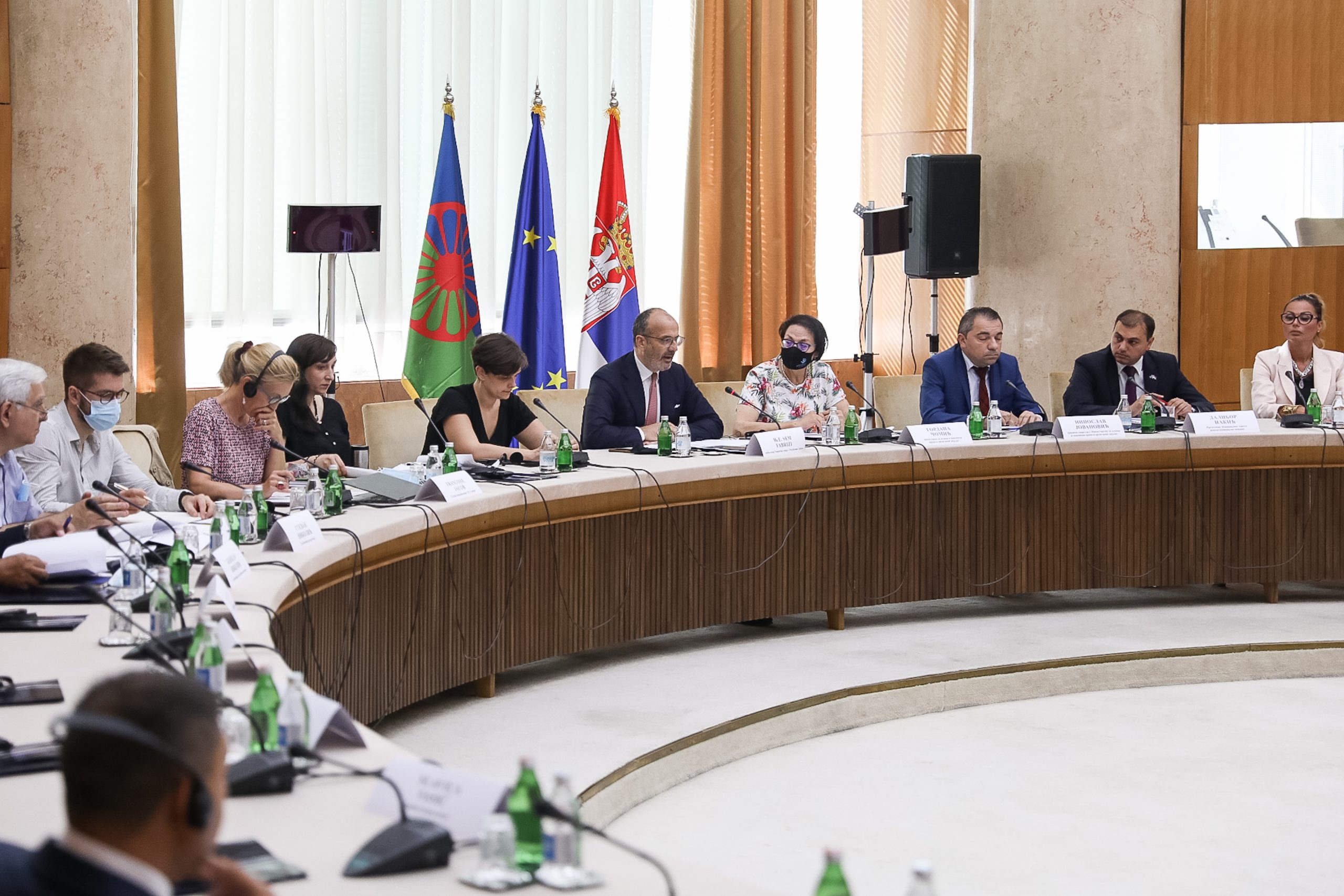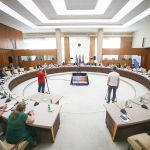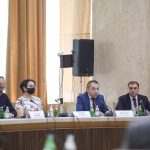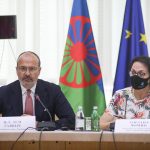Serbia has achieved a progress in the process of social integration of Roma, but more work is needed, as coronavirus pandemic threatens to increase inequality – this was a conclusion of the technical dialogue about state institutions in this field.
The meeting was attended by representatives of the Government, the National Council of the Roma National Minority, international and civil society organisations, as well as donors who assessed progress through the exchange of key achievements and challenges in key areas such as education, health, personal documents, housing and employment, and defined the next steps in the process of social inclusion of Roma men and women.
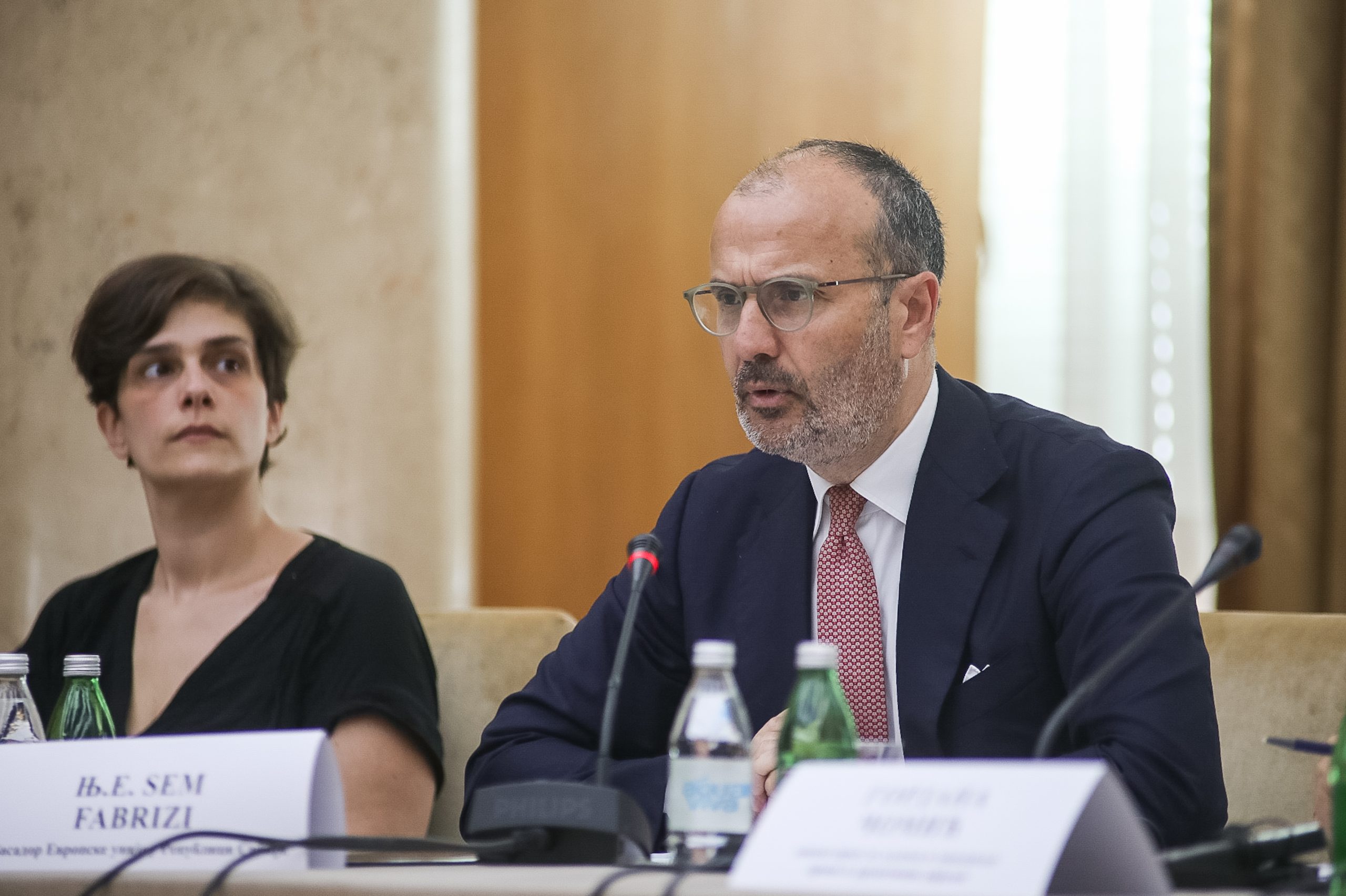
Head of the Delegation of the European Union to Serbia, Ambassador Sem Fabrizi, pointed out in his introductory speech that the pandemic has increased the risk of inequality of socially vulnerable groups and therefore it is necessary to double the commitment to social inclusion of Roma men and women in Serbia.
“We have made significant progress in terms of registering Roma in the Registry of Births immediately upon their birth, and 2,000 people have been registered in the last five years. We also launched an innovative initiative in which we formed 50 mobile teams, thus improving Roma access to basic rights. Last year alone, we awarded 1,000 scholarships to Roma students,” said Ambassador Fabrizi.
The Minister for Human and Minority Rights and Social Dialogue, Gordana Čomić, pointed out that last week the Government had made a decision on the establishment of a Coordination Body for Roma Inclusion.
“We will also revise the existing Roma Inclusion Strategy in line with the recently adopted European framework.”
The Minister also reminded that Serbia committed itself “to improving the situation of Roma in all areas of life and work, education, employment, health, housing, registration, reducing discrimination” at the Western Balkans Summit in 2019 and 2020, and that it will continue working on it.
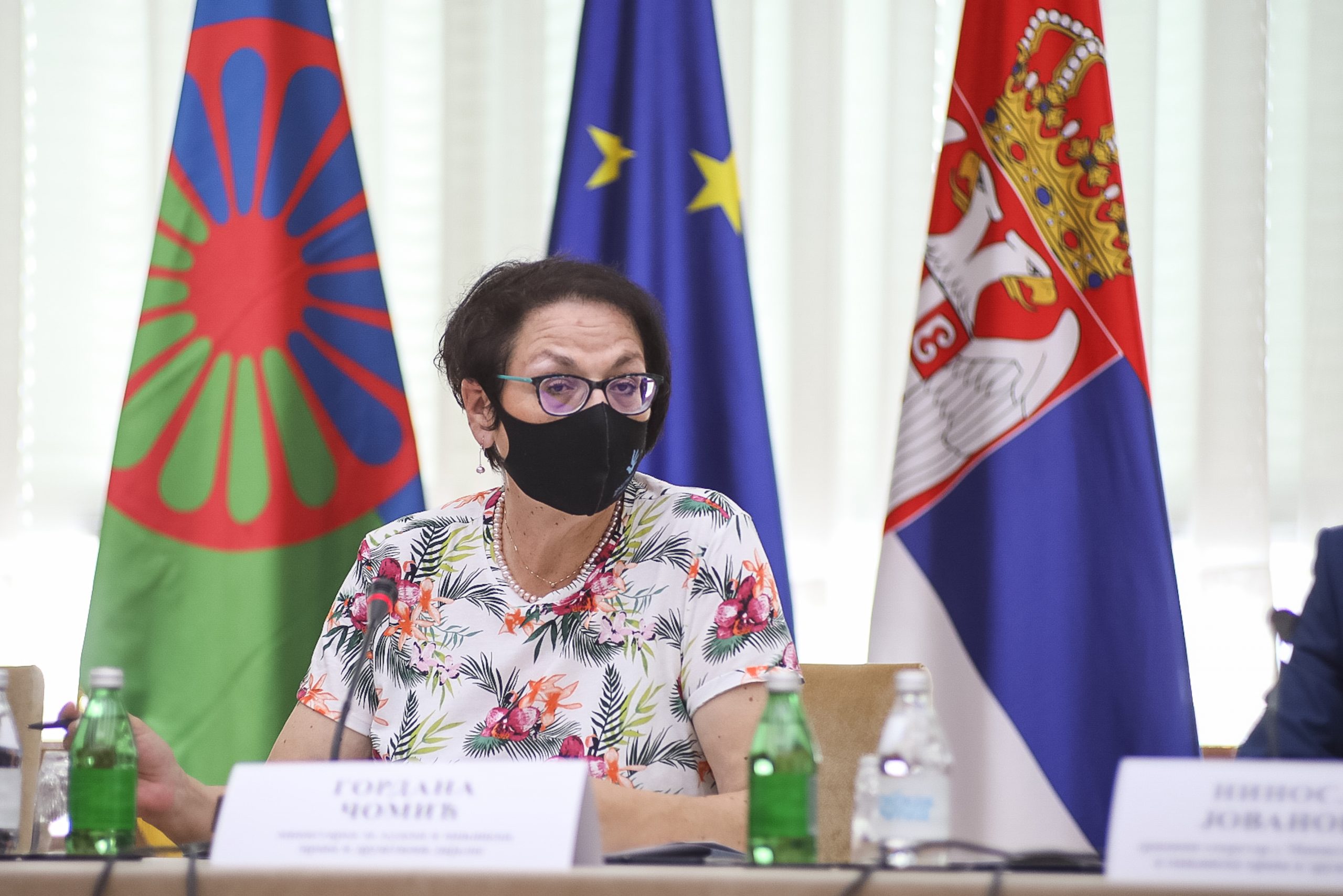
The President of the National Council of the Roma National Minority, Dalibor Nakić, commented on the results achieved in the process of improving the position of Roma in the past period.
“We are aware of the fact that the problems of the Roma are very complex, that they are interconnected and that they permeate several areas, meaning only a systematic approach can successfully solve these problems.”
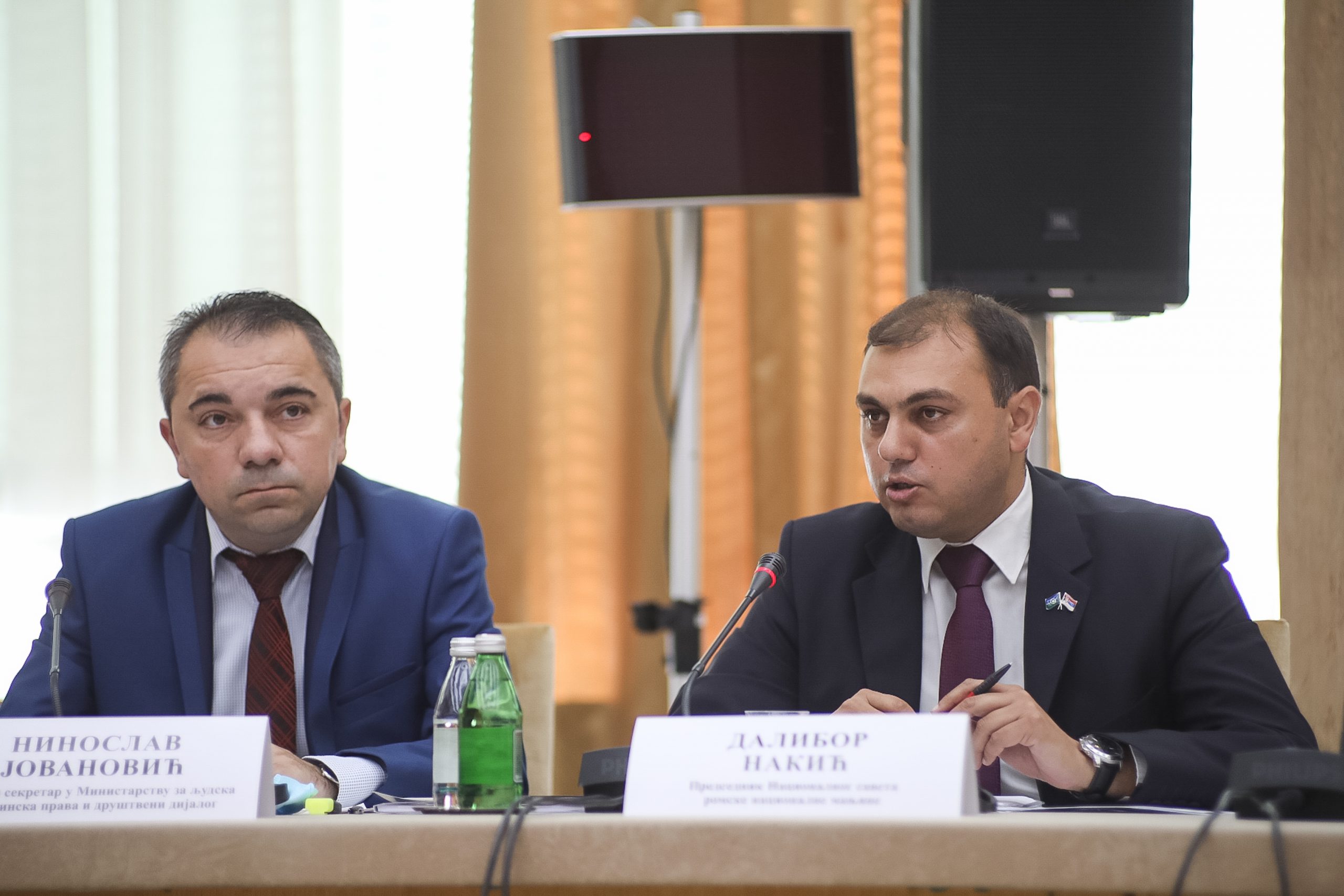
During the meeting, the Report on the implementation of the Operational Conclusions from the seminar “Social Inclusion of Roma Men and Women in the Republic of Serbia” for the period October 2019 – October 2021 was presented.
The technical meeting on social inclusion of Roma men and women in Serbia was organised by the Government of Serbia in partnership with the European Commission. This technical social dialogue aims to summarise the achieved results and consider the priorities for the future period in the field of social inclusion of one of the most vulnerable social groups in Serbia. Since 2011, every other year, the Government, in cooperation with the European Commission, organises seminars on the social inclusion of Roma men and women, and the last such seminar was organised in 2019.
Roma inclusion is absolutely in line with the EU principle of complete respect for the fundamental rights of all citizens. As such, it is one of the basic priorities of the Member States and candidate countries. In October 2020, the European Commission adopted a new ten-year plan to support Roma in the EU, focusing on seven key objectives: equality, inclusion, participation, education, employment, health and housing.
In March 2016, the Republic of Serbia adopted the Roma Inclusion Strategy for the period from 2016 to 2025. Roma are one of the most vulnerable, discriminated and marginalised groups in Serbia. Therefore, strengthening the institutional capacity for Roma inclusion at the local level is crucial. The EU is by far the largest donor in Serbia, including the Roma inclusion process, with ongoing projects worth EUR 30 million.

